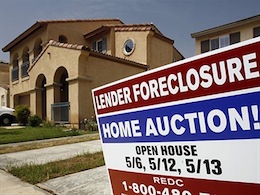 (Reuters) - Joseph Keller doesn't expect he'll live to see the end of 2013. He blames the house at 190 Avondale Avenue.
(Reuters) - Joseph Keller doesn't expect he'll live to see the end of 2013. He blames the house at 190 Avondale Avenue.
Five years ago, Keller, 10 months behind on his mortgage payments, received notice of a foreclosure judgment from JP Morgan Chase. In a few weeks, the bank said, his three-story house with gray vinyl siding in Columbus, Ohio, would be put up for auction at a sheriff's sale.
The 58-year-old former social worker and his wife, Jennifer, packed up their home of 13 years and moved in with their daughter. Joseph thought he would never have anything to do with the house again. And for about a year, he didn't.
Then it started to stalk him.
First, in 2010, the county sued Keller because the house, already picked clean by scavengers, was in a shambles, its hanging gutters and collapsed garage in violation of local housing code. Then the tax collector started sending Keller notices about mounting back taxes, sewer fees and bills for weed and waste removal. And last year, Chase's debt collector began pressing Keller to pay his mortgage, which had swollen, with penalties and fees, from $62,100.27 to $84,194.69.
The worst news came last January, when the Social Security Administration rejected Keller's application for disability benefits; the "asset" on Avondale Avenue rendered him ineligible. Keller's medical problems include advanced liver disease, hepatitis C and inactive tuberculosis. Without disability coverage, he can't get the liver transplant he needs to stay alive.
"I can't make it end," says Keller. "This house, I can't get out."
Keller continues to bear responsibility for the house because on December 23, 2008 - about two months after he received Chase's notice of sale - the bank filed to dismiss the foreclosure judgment and the order of sale. Chase said it sent Keller a copy of its court filing on December 9, 2008. Keller says he never received any notification. Either way, his name remained on the property title.
WITH IMPUNITY
The Kellers are caught up in a little-known horror of the U.S. housing bust: the zombie title. Six years in, thousands of homeowners are finding themselves legally liable for houses they didn't know they still owned after banks decided it wasn't worth their while to complete foreclosures on them. With impunity, banks have been walking away from foreclosures much the way some homeowners walked away from their mortgages when the housing market first crashed.
"The banks are just deciding not to foreclose, even though the homeowners never caught up with their payments," says Daren Blomquist, vice president at RealtyTrac, a real-estate information company in Irvine, California.



